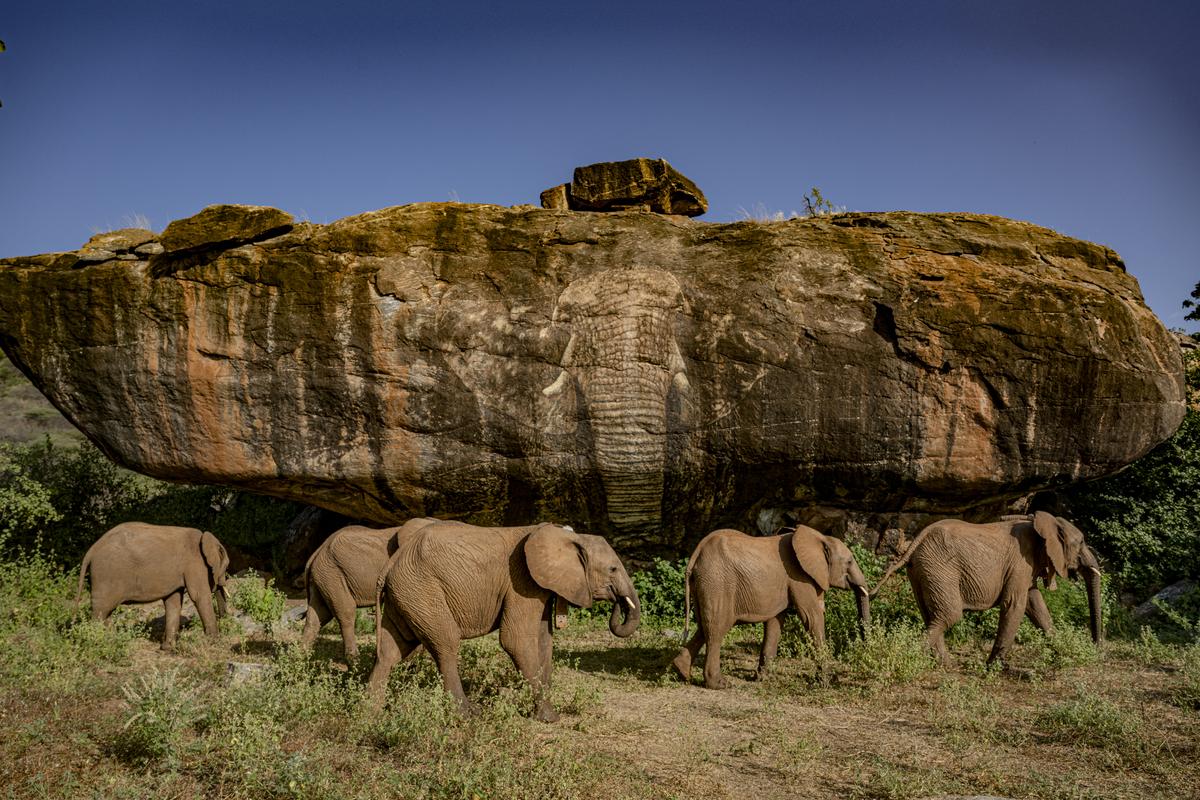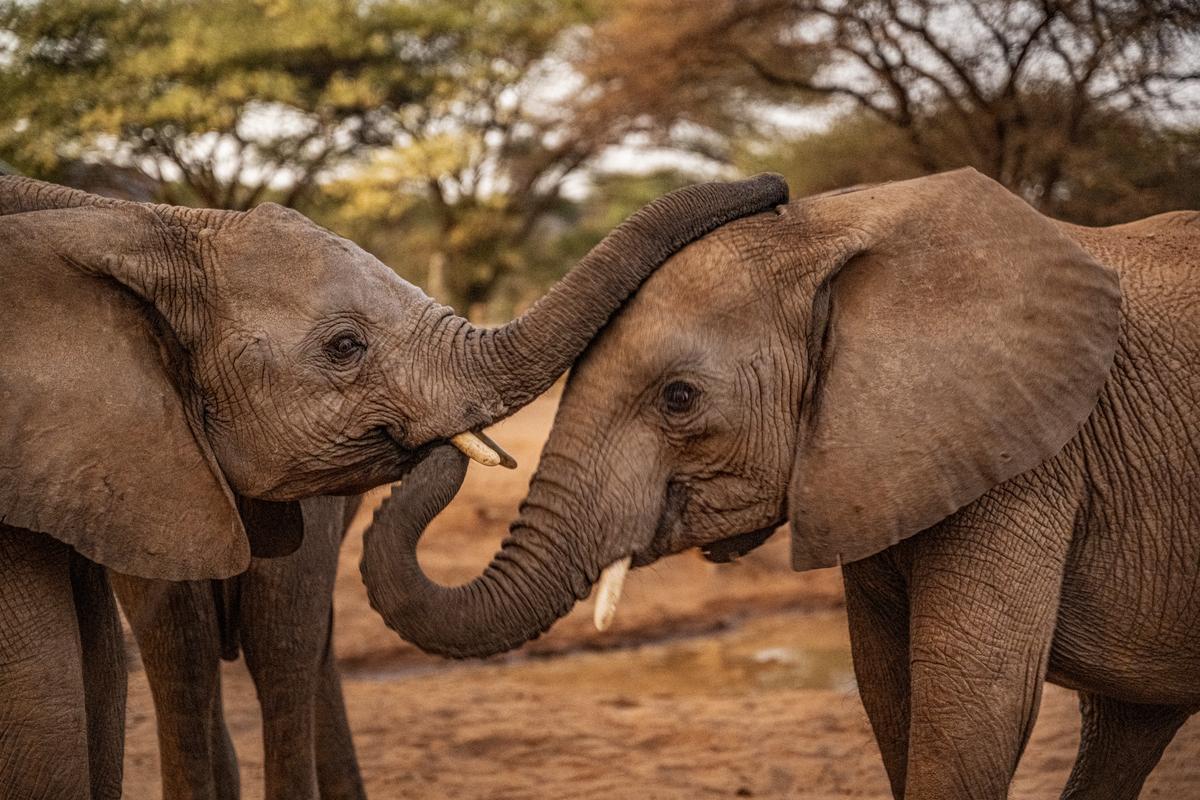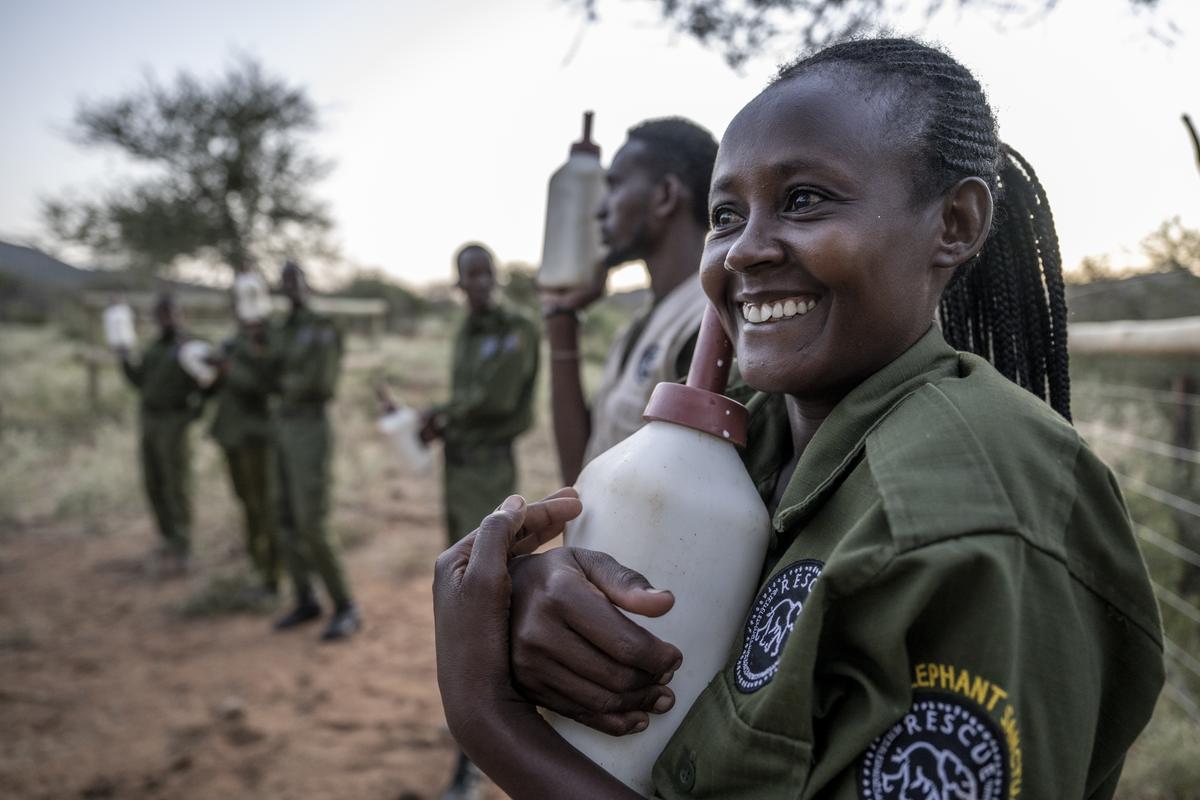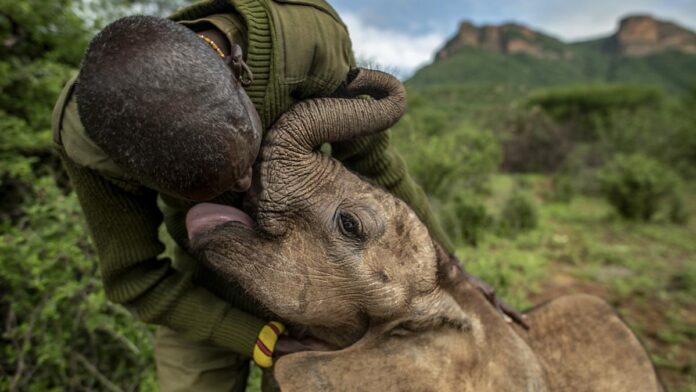
Kapai, an orphaned calf, nuzzles elephant keeper Lekupinai Tiyapi.
| Photo Credit: Ami Vitale
In northern Kenya, local communities are embracing elephants as neighbours, thanks to the transformative efforts of Reteti Elephant Sanctuary. Owned and operated by the Samburu community, the sanctuary rescues orphaned and abandoned elephant calves, rehabilitates them, and reintroduces them to the wild. This approach to ‘rewilding’ involves guiding the calves back to their natural habitat in a way that that minimises stress and fosters a deeper bond between the animals and their environment. Over the last month alone, 12 elephants have been successfully reintegrated.

Reteti Elephant Sanctuary is the first indigenous-owned and operated elephant sanctuary in Africa.
| Photo Credit:
Ami Vitale

Orphaned elephants at Reteti Elephant Sanctuary
| Photo Credit:
Ami Vitale
A key factor in this success is the role of “elephant guardians” — locals trained to bridge the gap between the animals and the communities. Using GPS geofencing technology, they monitor the elephants’ movements and alert the communities across the vast Namunyak Conservancy when the animals approach. This early warning system is crucial for preventing conflicts and ensuring safety on both sides.
The elephants are now seen as valuable assets to the community. They contribute to the local economy through eco-tourism and the milk-to-market initiatives, which support Samburu women in selling excess goat milk to the sanctuary. This not only provides jobs and income, but also strengthens the integration of conservation efforts into everyday life.

Naomi Leshongoro holds milk as 13 orphaned elephants from Reteti Elephant Sanctuary are given their last bottle before being returned to the wild.
| Photo Credit:
Ami Vitale
Lessons to learn
* Linking conservation efforts with tangible economic benefits, such as through eco-tourism jobs, will encourage communities to support and protect wildlife.
* Implementing technologies such as GPS geofencing can help foster a more harmonious coexistence.
#Reteti #Elephant #Sanctuary #Rewilding #Kenya
